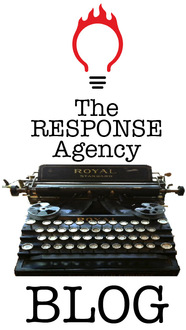Today, his is no longer the default. Granted, accommodating the change entails some inconvenience for those of us who write for a living. But not much of one. It takes minimal effort to fix “Everyone spoke his mind.” You can render it plural: “All spoke their minds.” You can opt for a modest rewrite: “Everyone spoke up.” Or, “Everyone leveled.” For that matter, even “Everyone spoke his or her mind” is not as onerous as we once thought.
Yet some folks rail against politically correct speech. Sometimes PC opponents even seem to position themselves as martyrs for freedom.
What they fail to understand is that political correctness is no more nor less than the politically correct term for good manners. It is no more unreasonable to ask people to drop the exclusive his in favor of his or her, or [I prefer not to type it] in favor of African American, than it is to remind your kids to say “please” and “thank you.”
If you have difficulty identifying with the call for political correctness, perhaps you don’t belong to a group that is routinely—consciously or not—disparaged or excluded by speech. The sharper-eyed among you will have noticed from my photo that I’m a middle-aged white male. Yet it has been my good fortune to spend time as a part of a minority more than once. I have been the only nonmember of a religion in my grade school, the only member of my race in the neighborhood, the only person in my city with an accent, the only member of a certain religion in my workplace and, after I gave up religion, the only non-religious person at work and in my neighborhood.
I do not pretend to understand what it’s like to be part of the minority in the U.S. But these experiences gave me a glimmer. During each of those times, I was surprised at the power of the majority to marginalize me through everyday and, usually, innocently-intended speech. Even the smallest dose inflicts more harm than the average insulated person might suppose.
To be sure, there is room for differing opinions as to what does and doesn’t matter speech-wise. If you happen to call your dog a pet instead of an animal companion, you’ll hear no complaint from me. Call me inconsistent if you wish. But at the very least, taking the time to weigh how a word choice may strike or affect another human is a worthy endeavor. It didn’t kill me to learn to replace mankind with humankind, nor to adopt respectful terms like Native American, same-sex or LGBT, Asian, Hispanic and others.
In fact, accommodating PC speech has done me some good. It has forced me to consider the effects of my actions—which word choices are—from someone else’s point of view. That process is called empathy. And empathy, most people agree, is a desirable trait. Even when it means having to change how we speak, write or act. Which is the whole idea behind empathy in the first place.
When someone jumps on an honest slip, it can annoy, even humiliate. Indeed, PC zealots often exhibit bad manners themselves. Alas, positive change rarely comes without inconvenience. But the adjustment is hardly burdensome, and the net effect—of treating one another better—will prove well worth it.
If you resent PC, please reconsider and embrace it instead.
—Steve Cuno
 RSS Feed
RSS Feed



